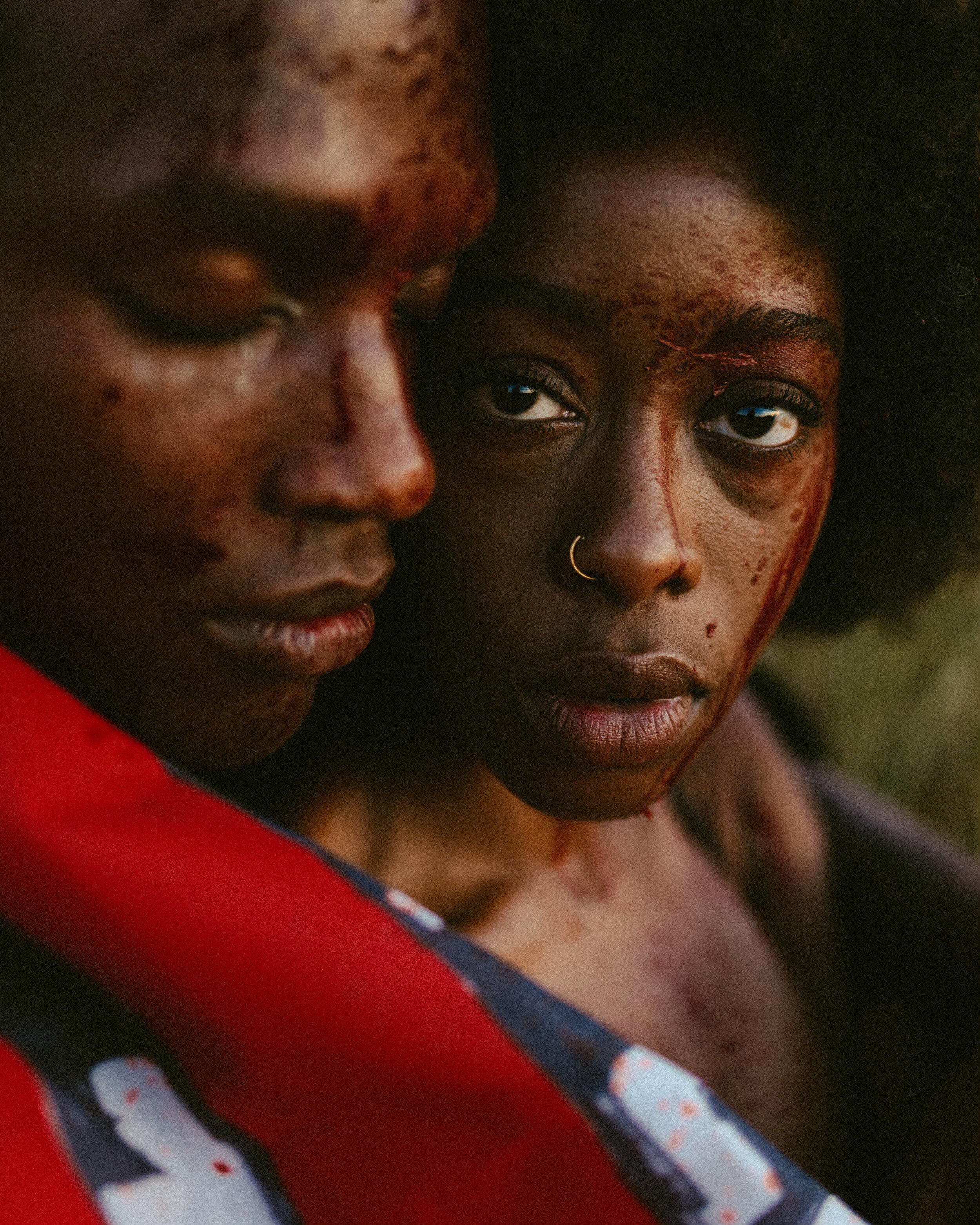
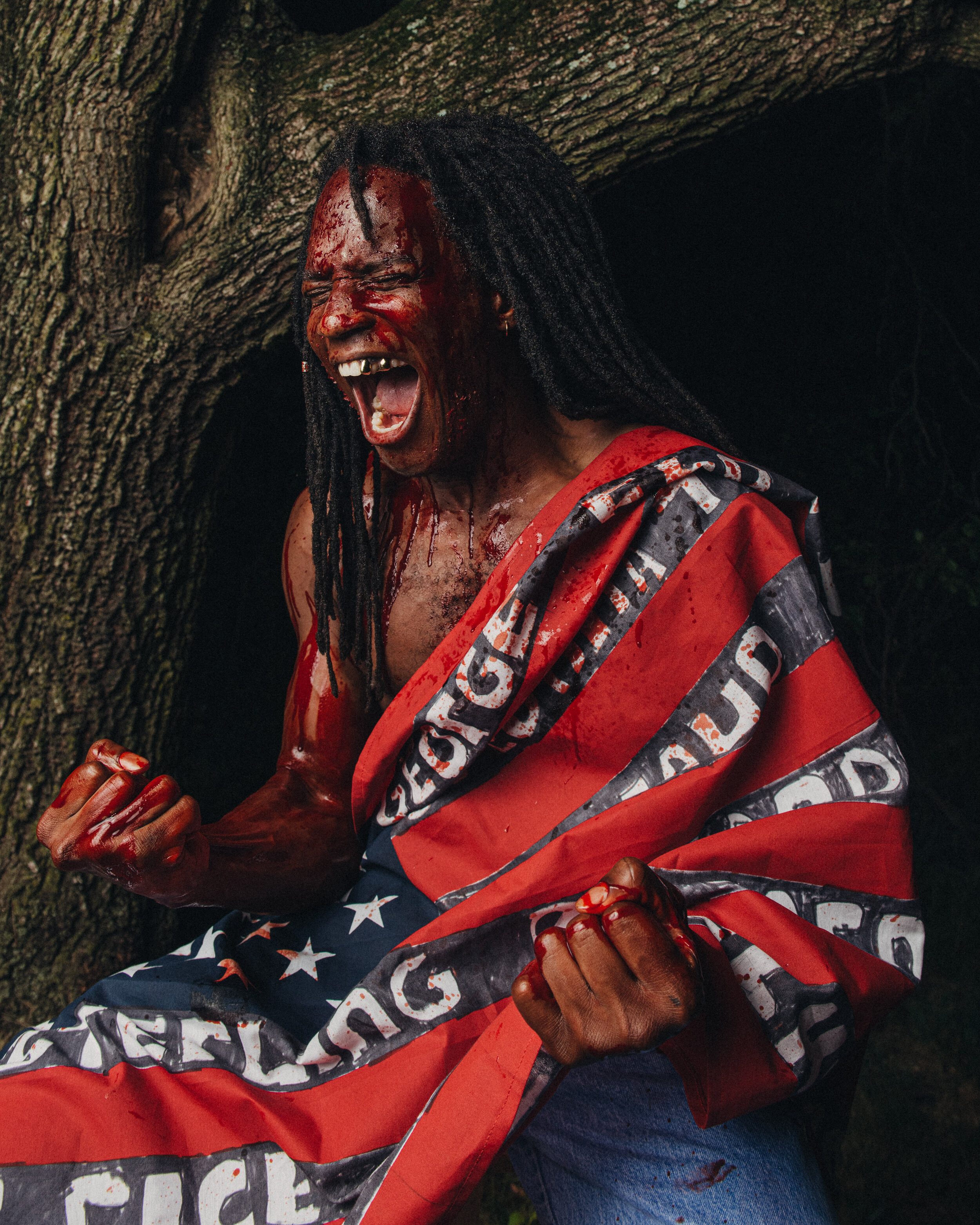
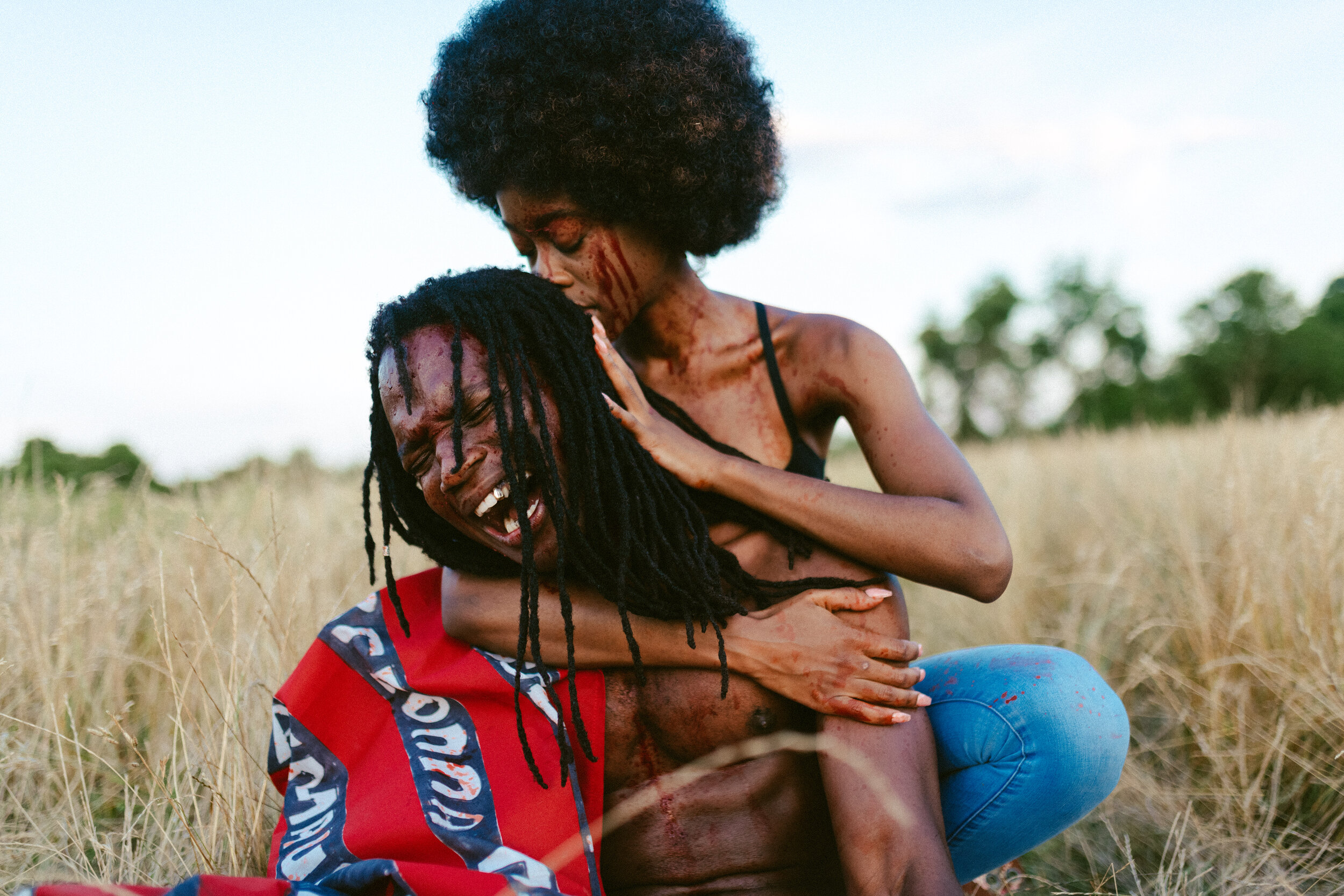
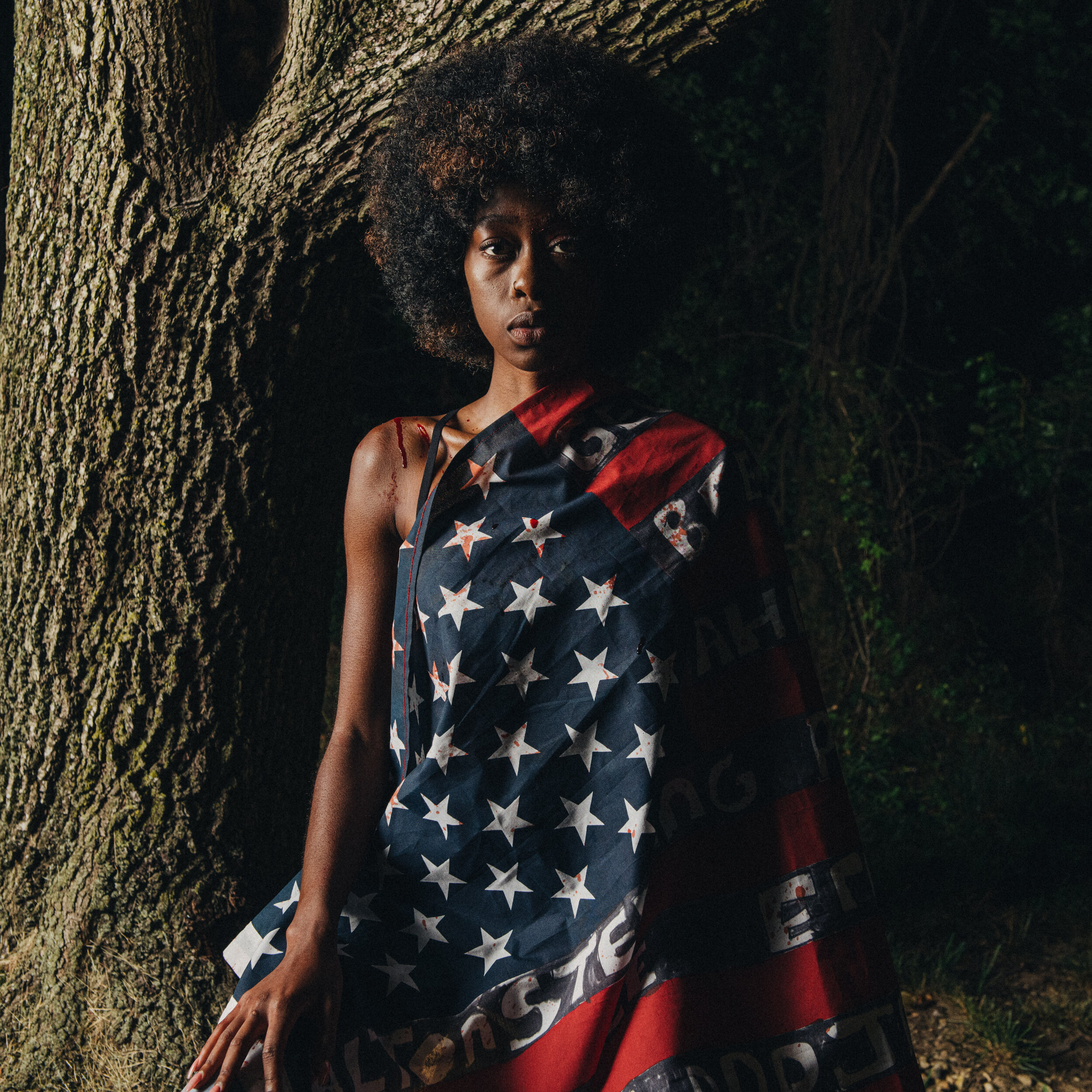
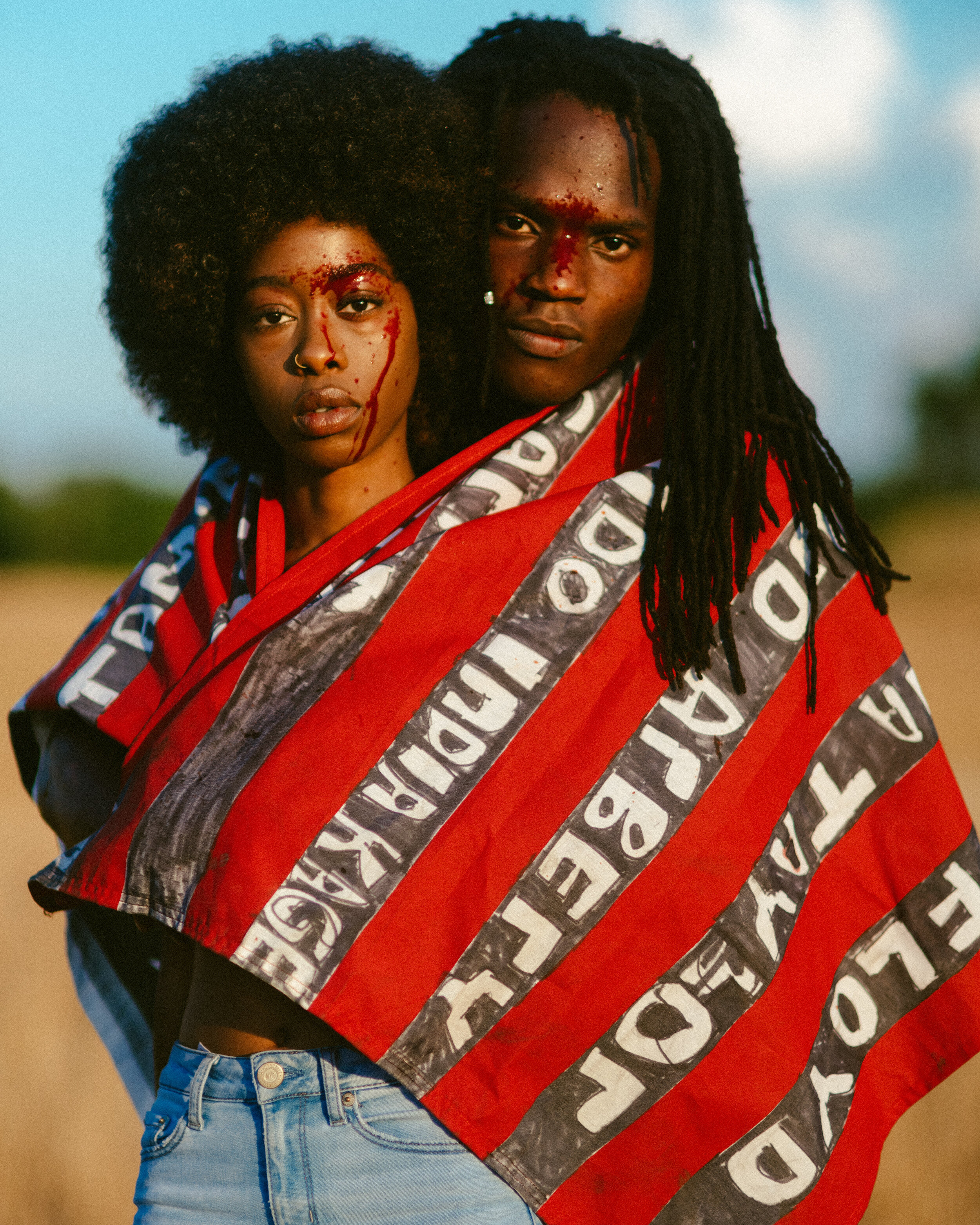
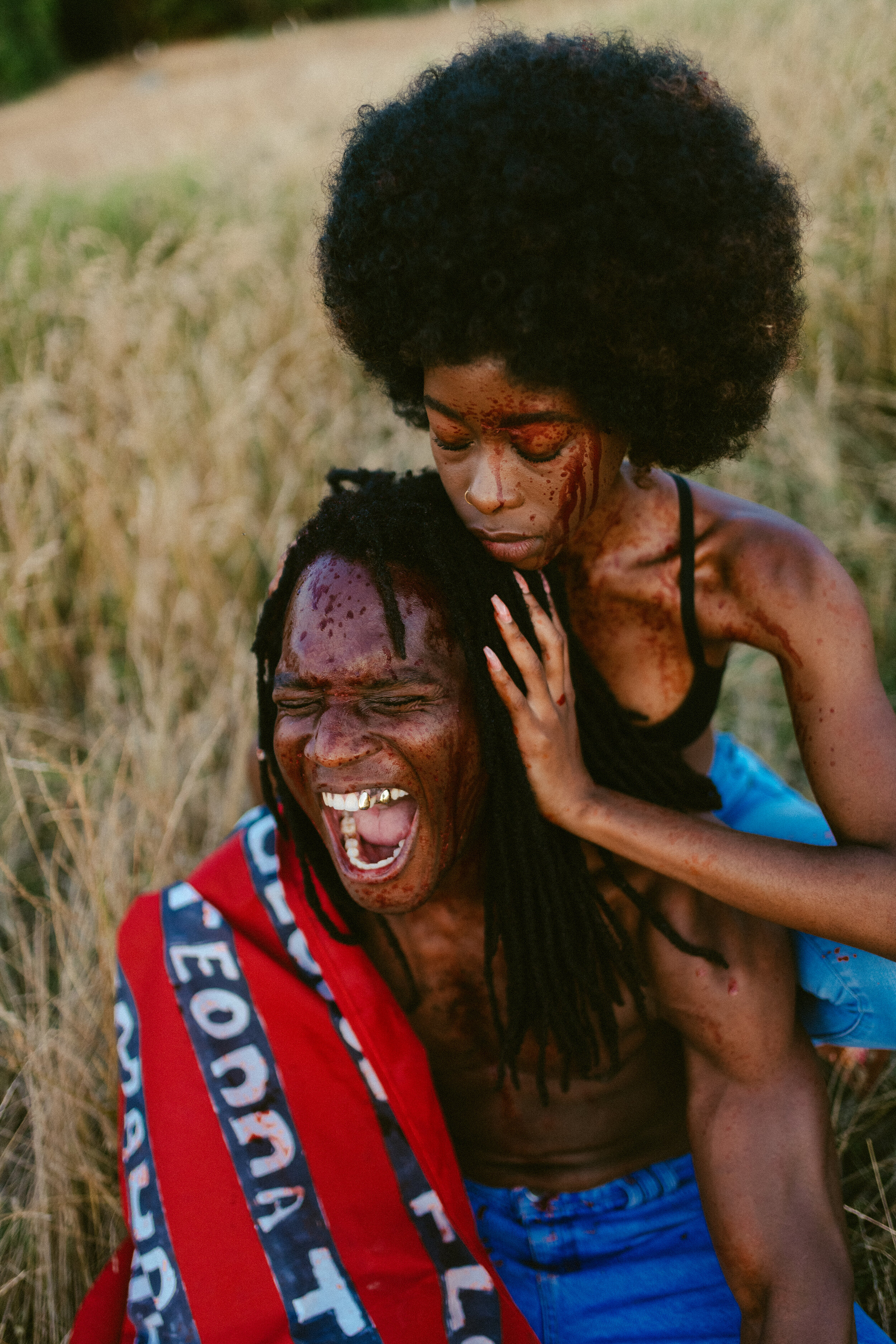
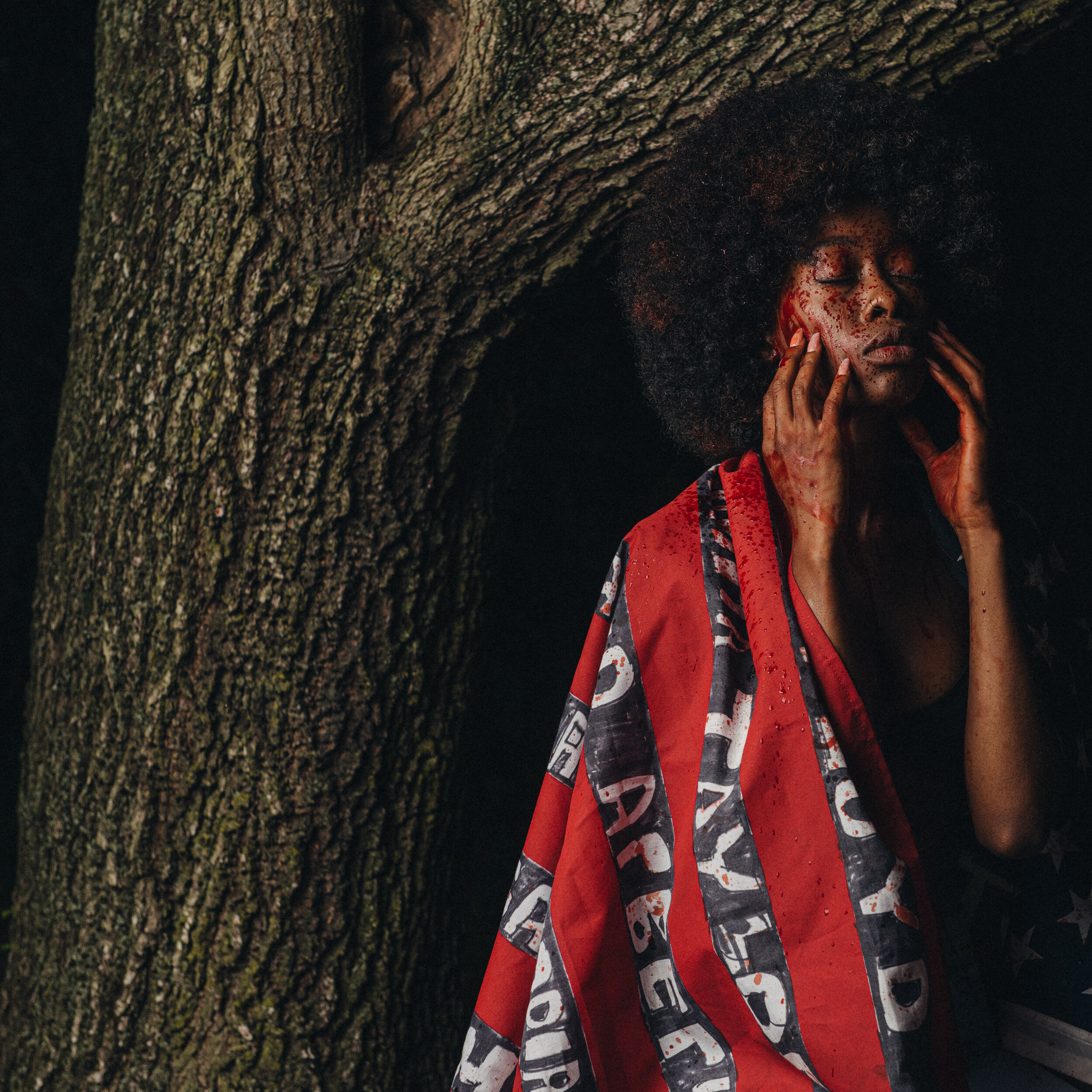
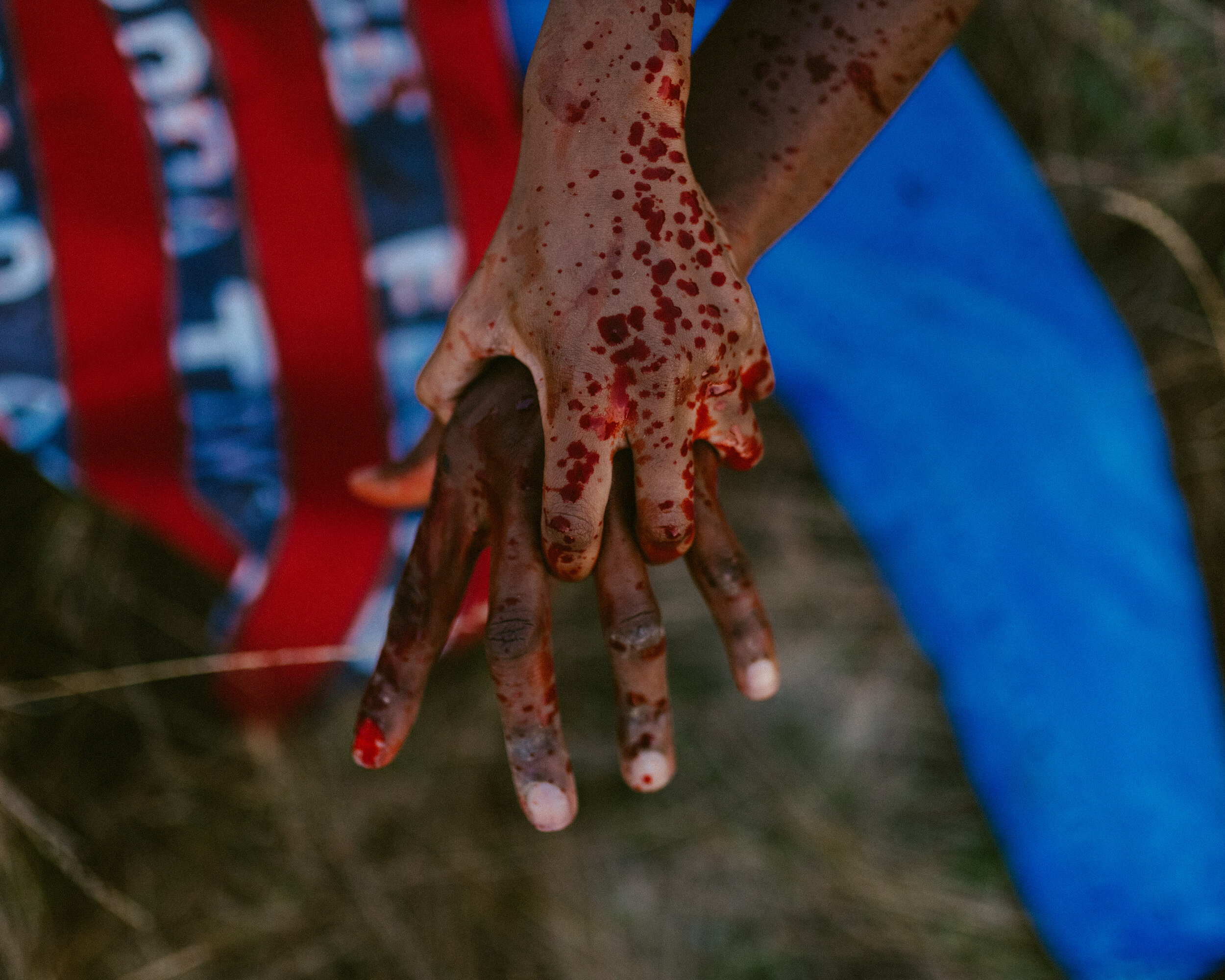
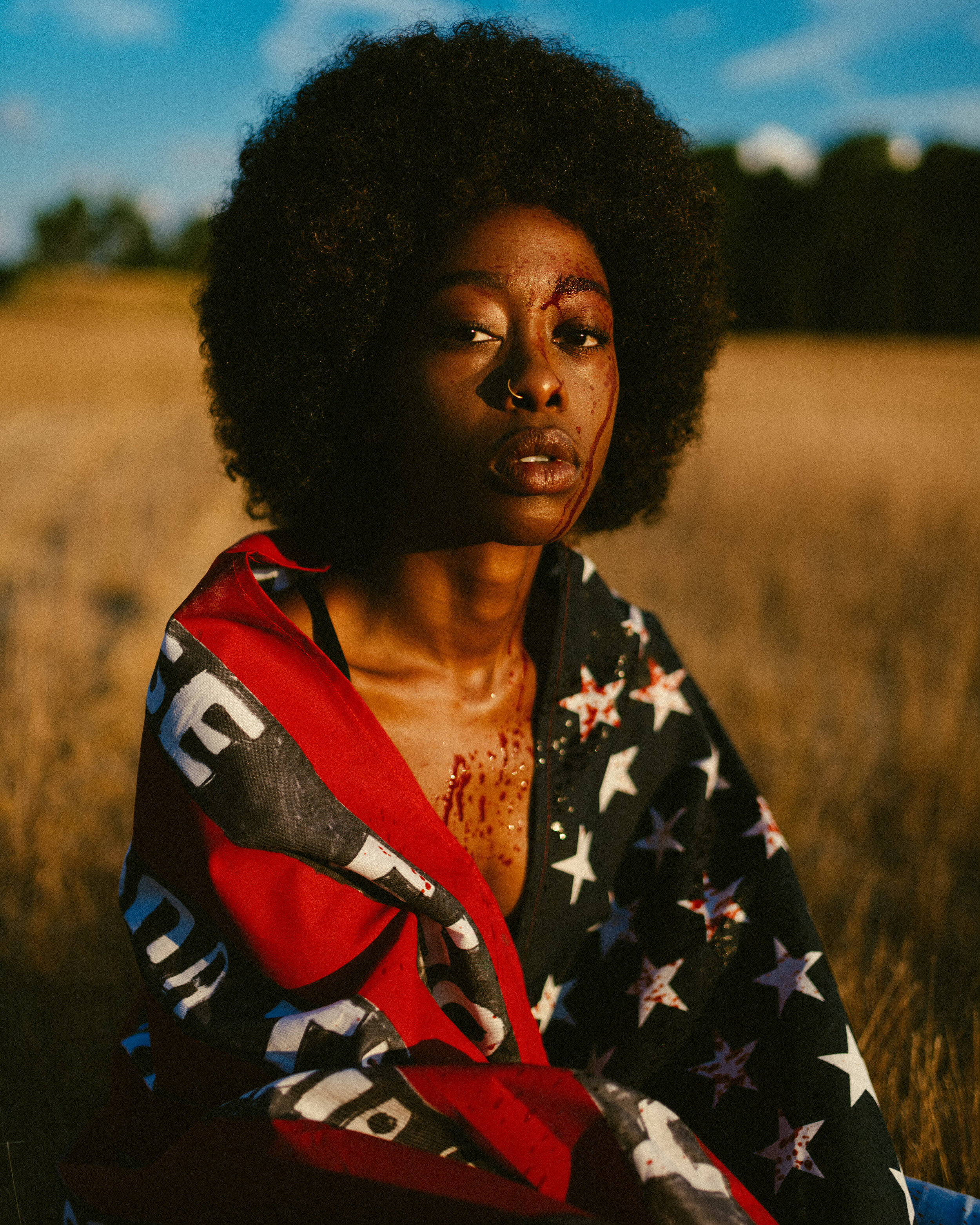
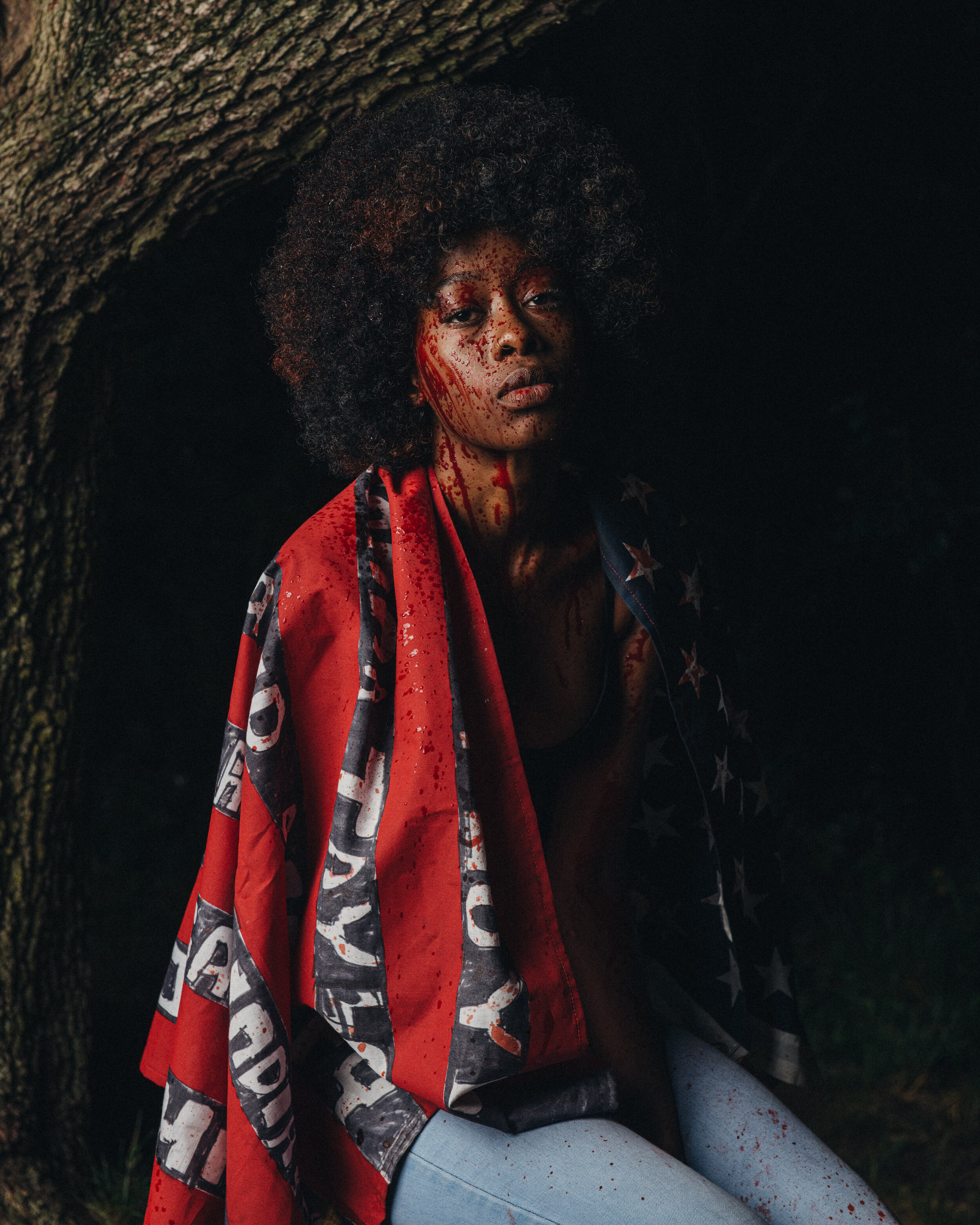
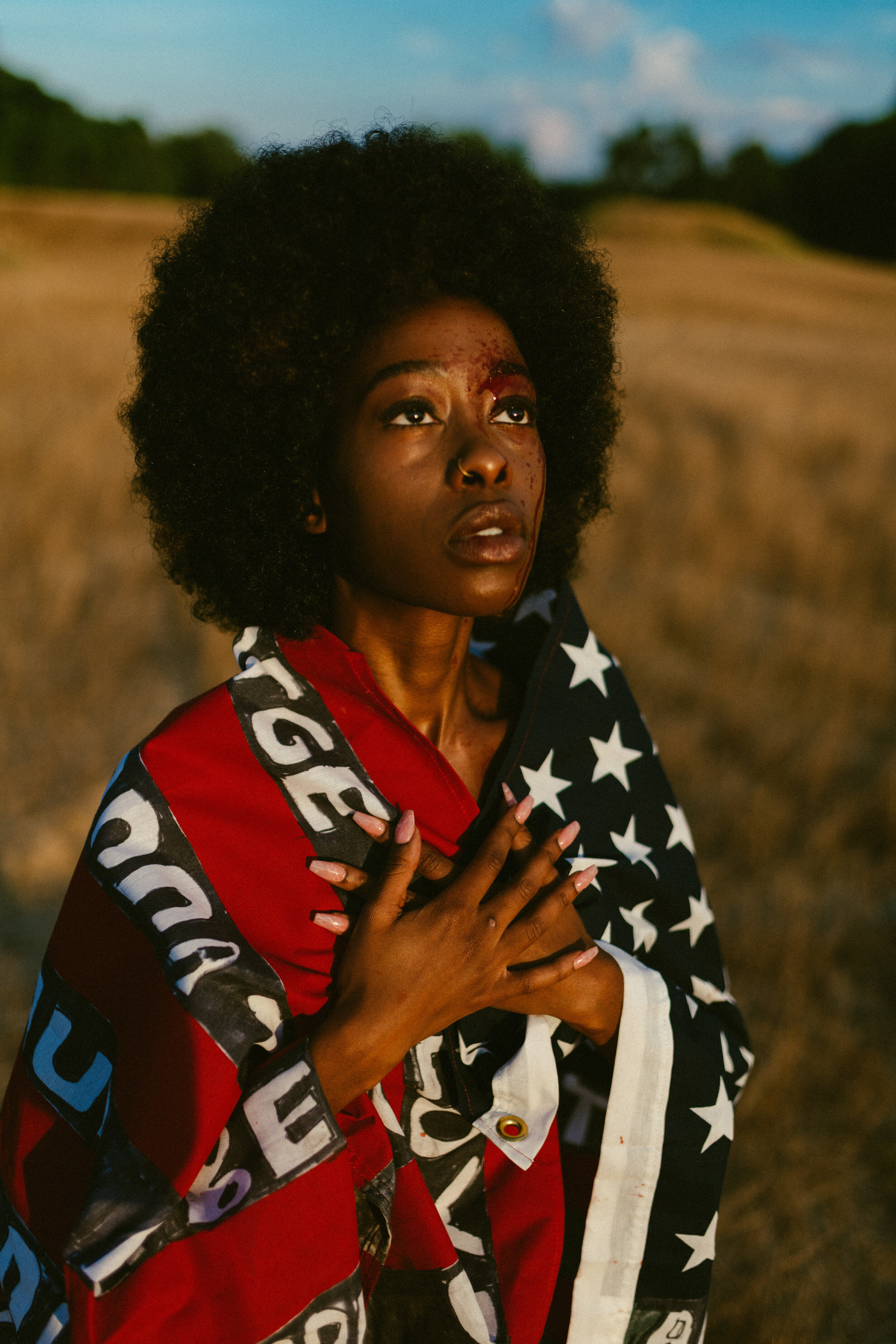
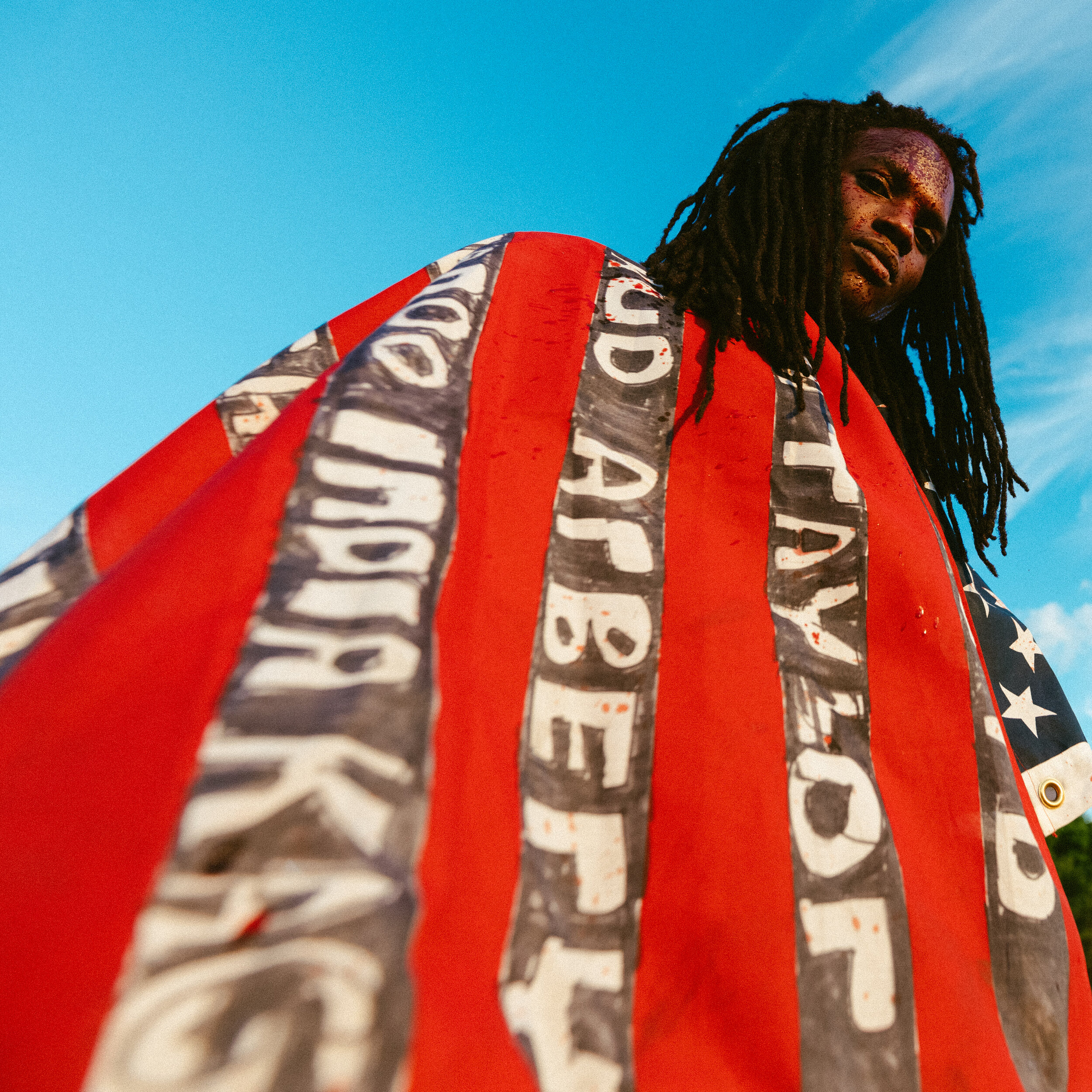
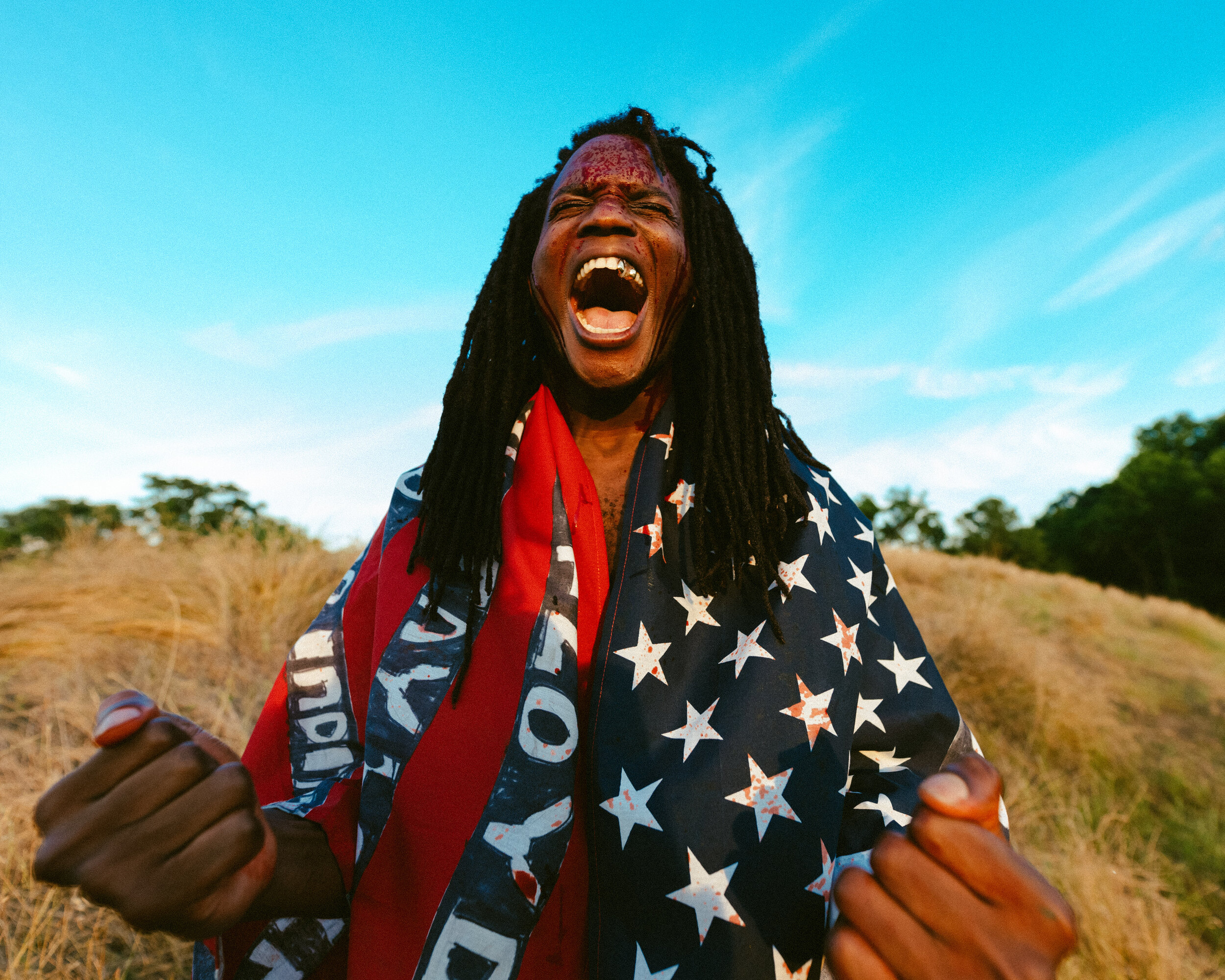
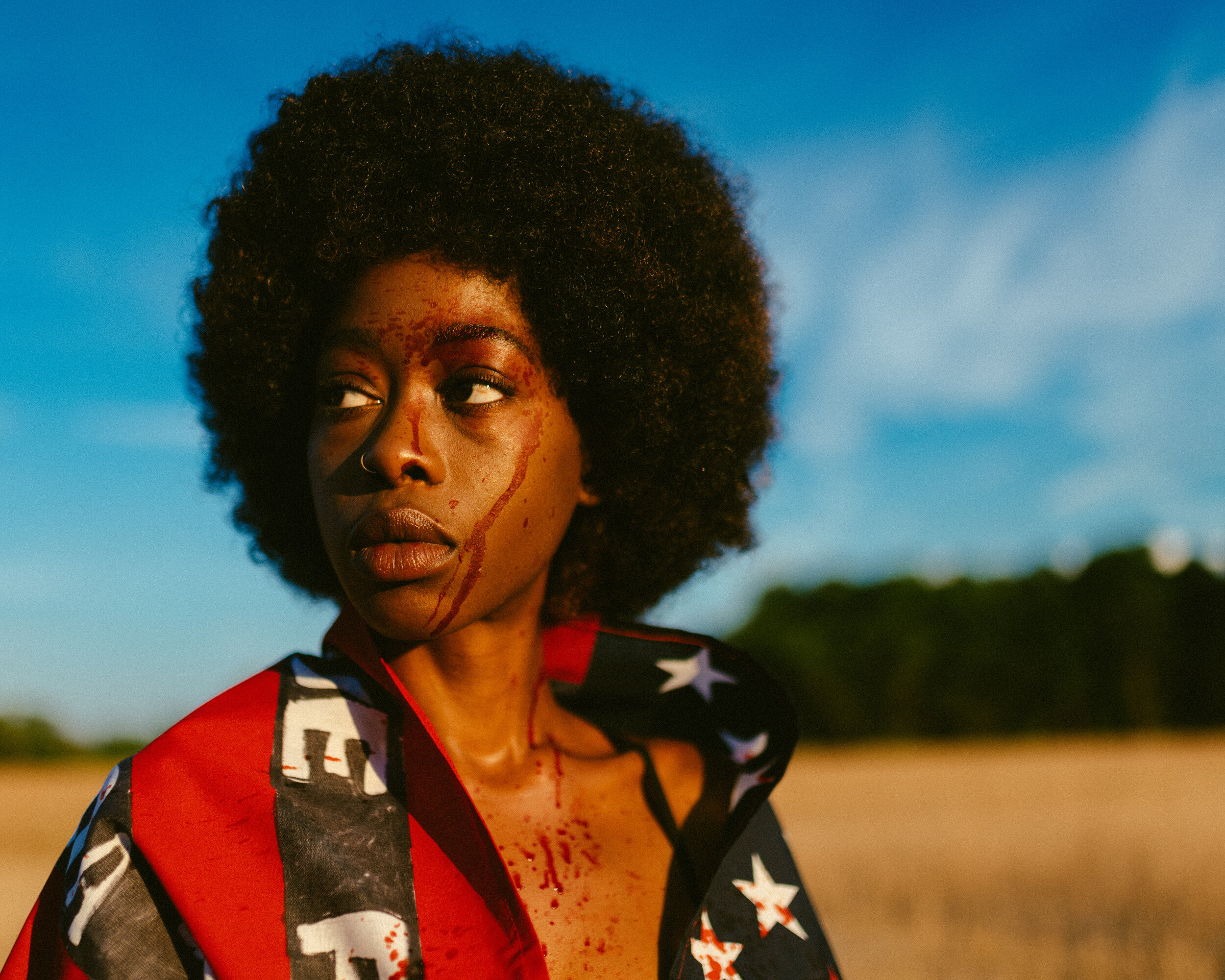
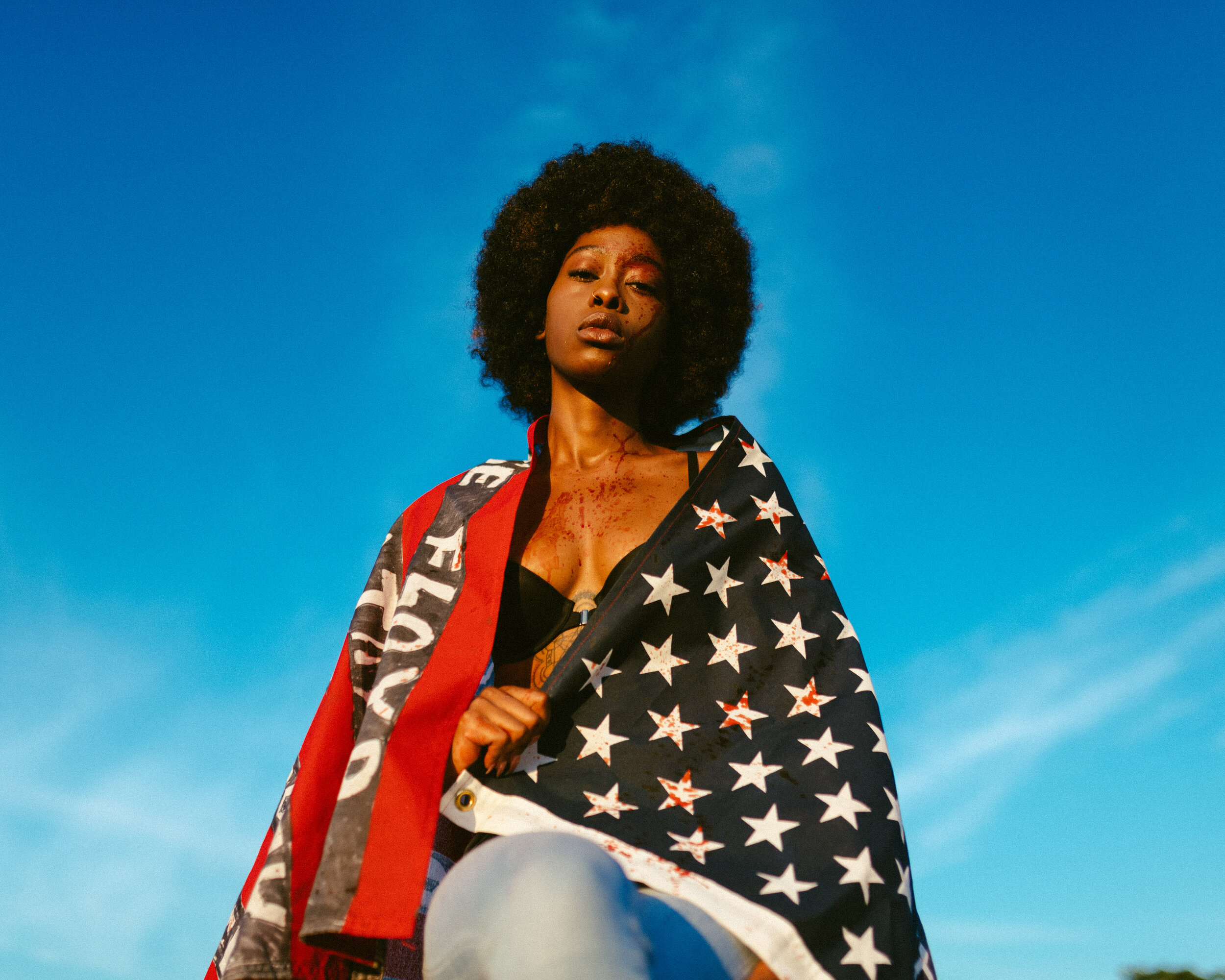
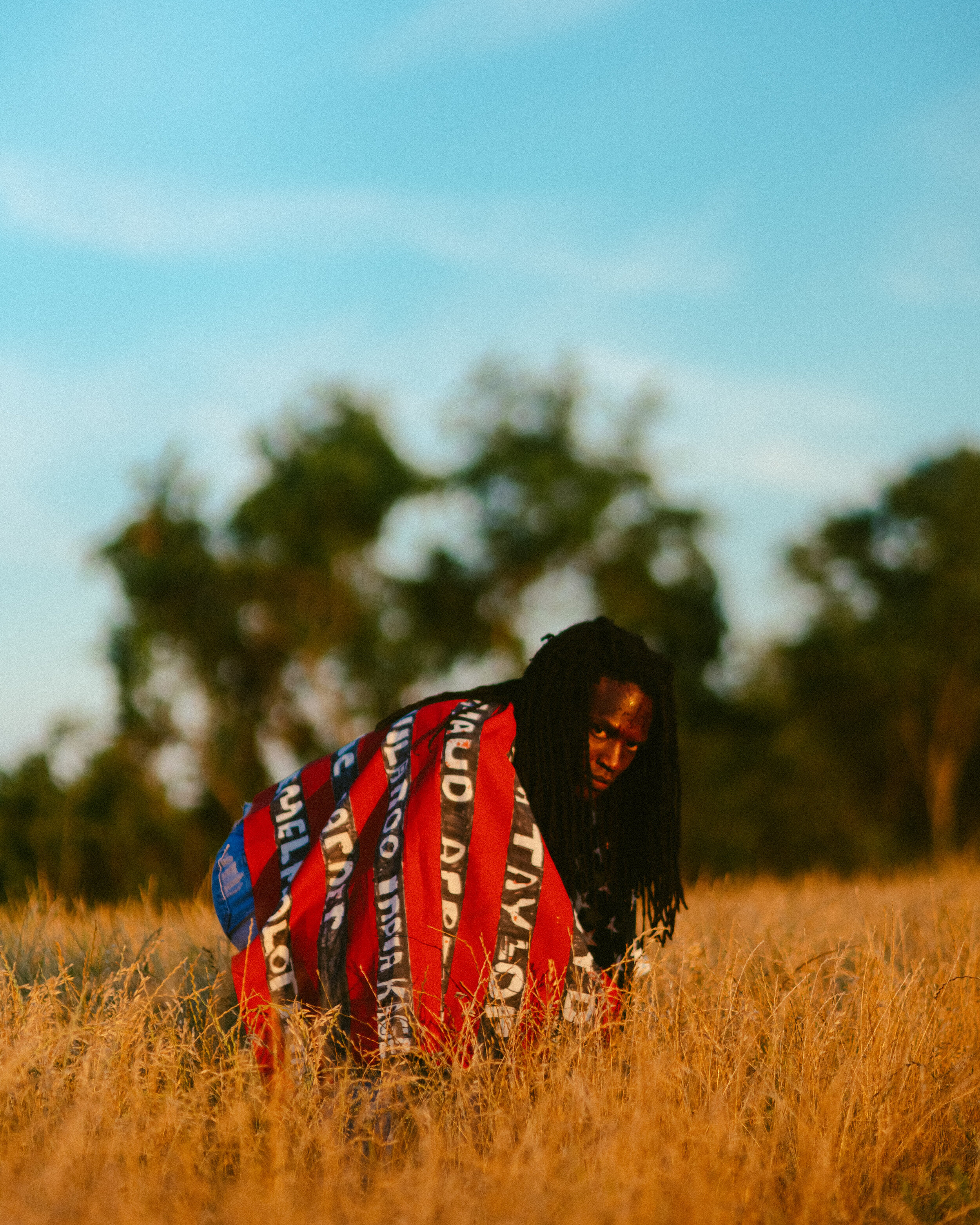
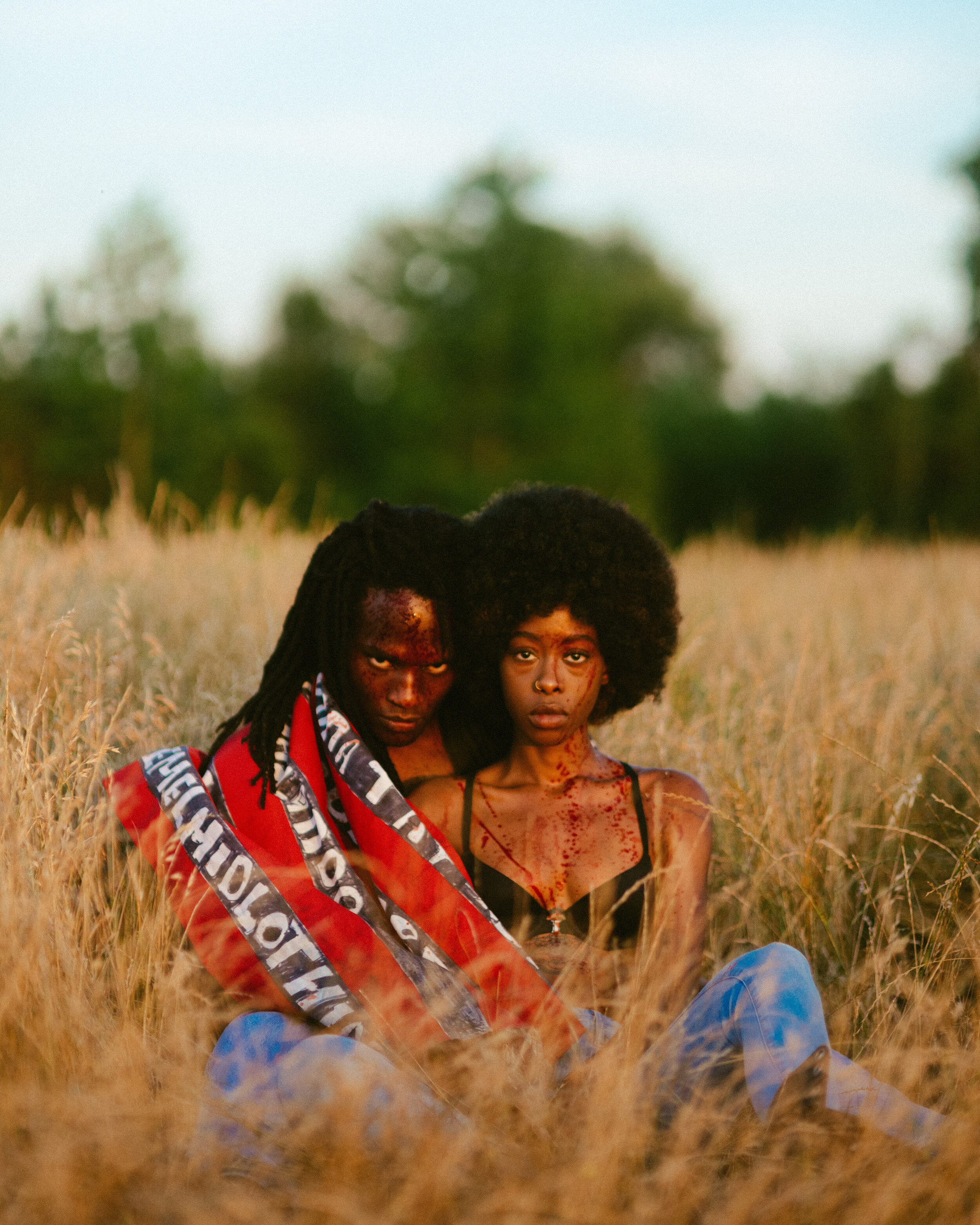
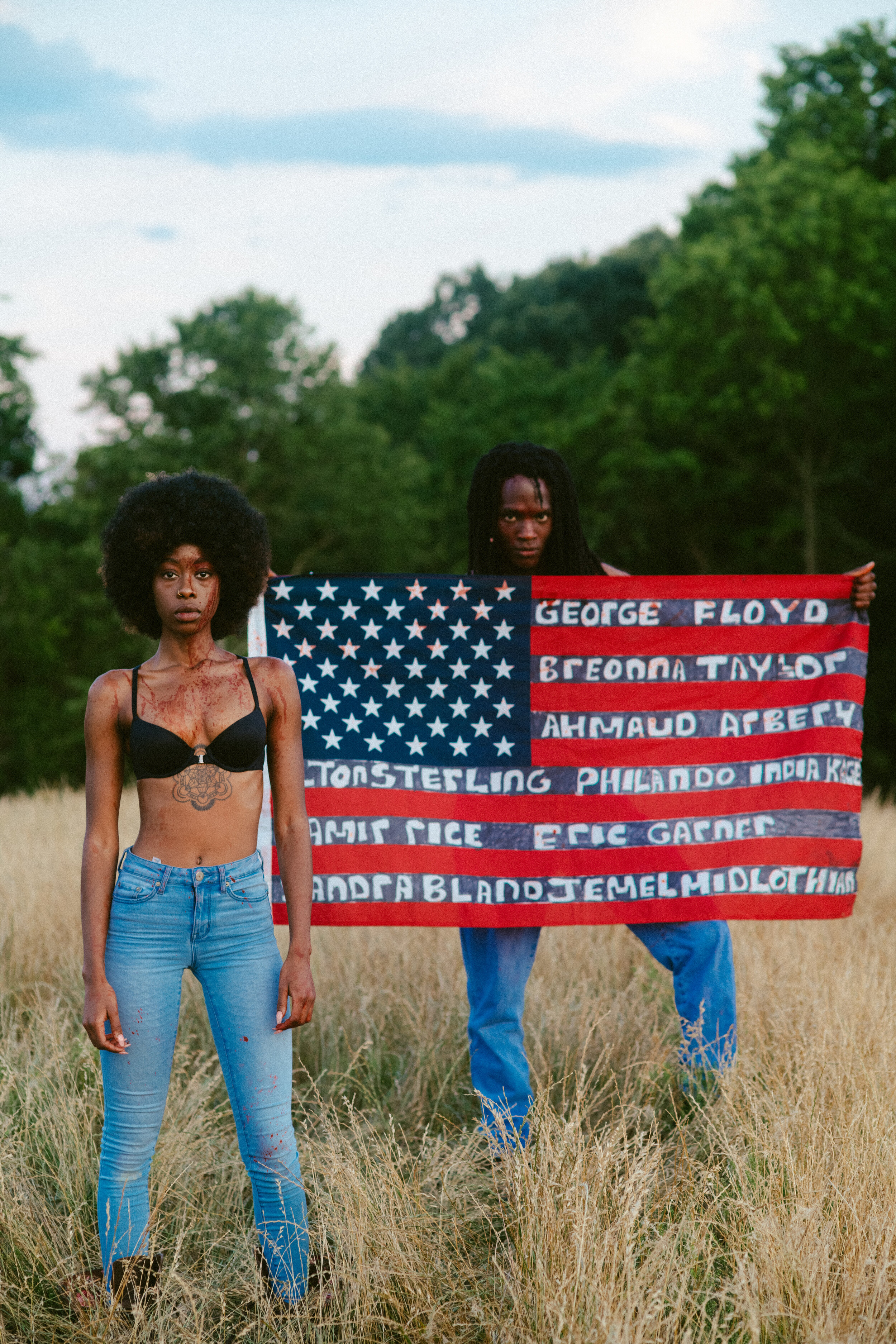
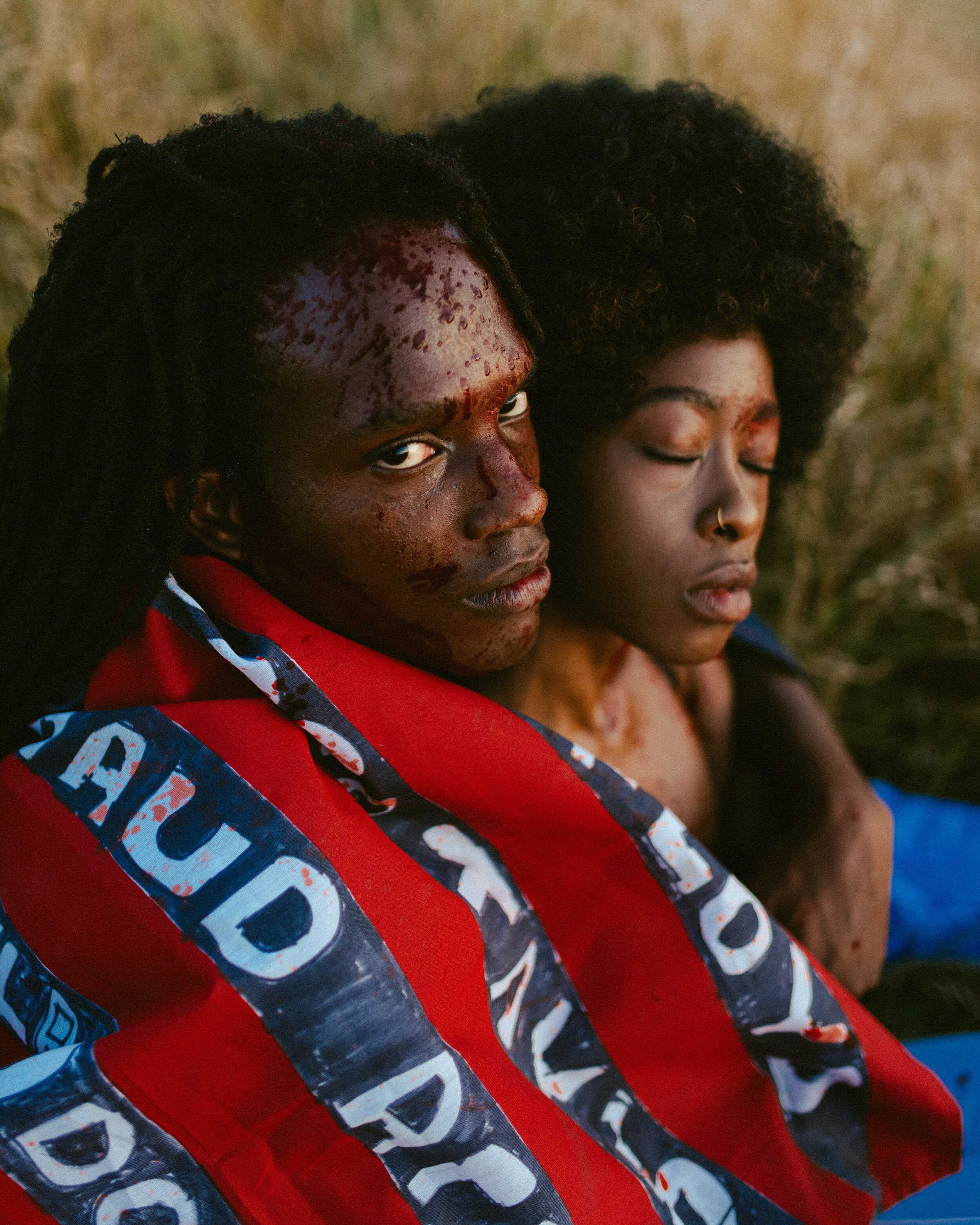
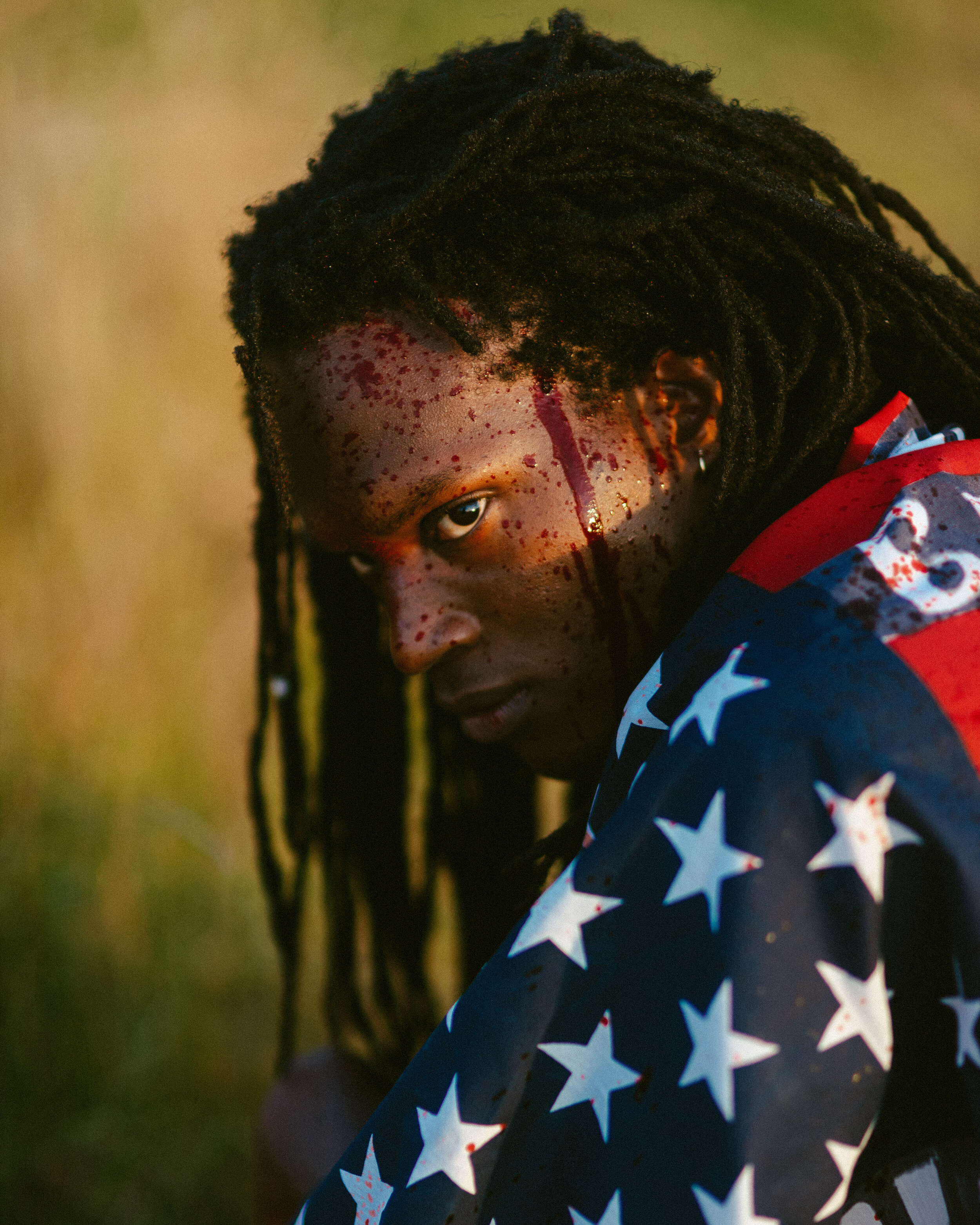
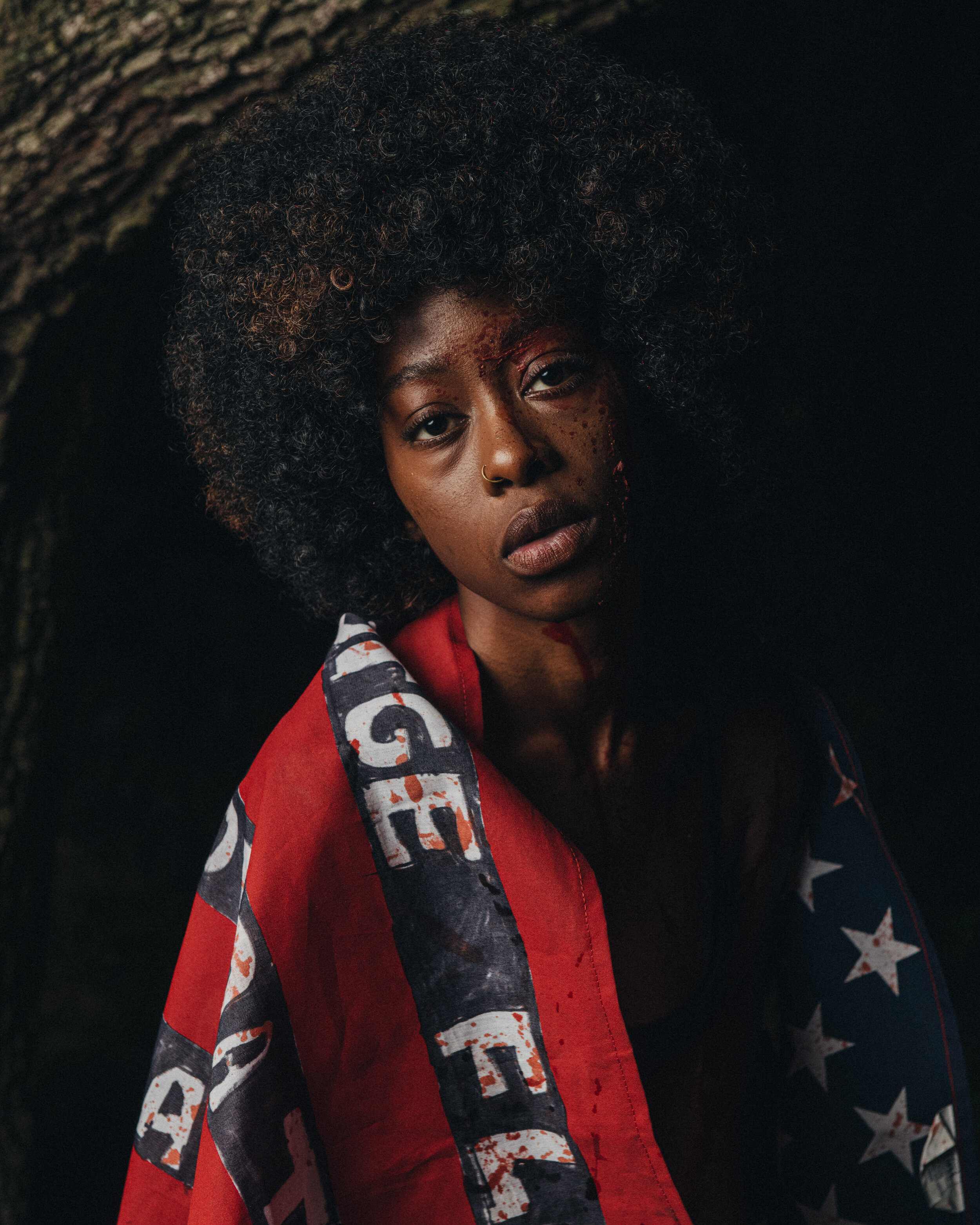
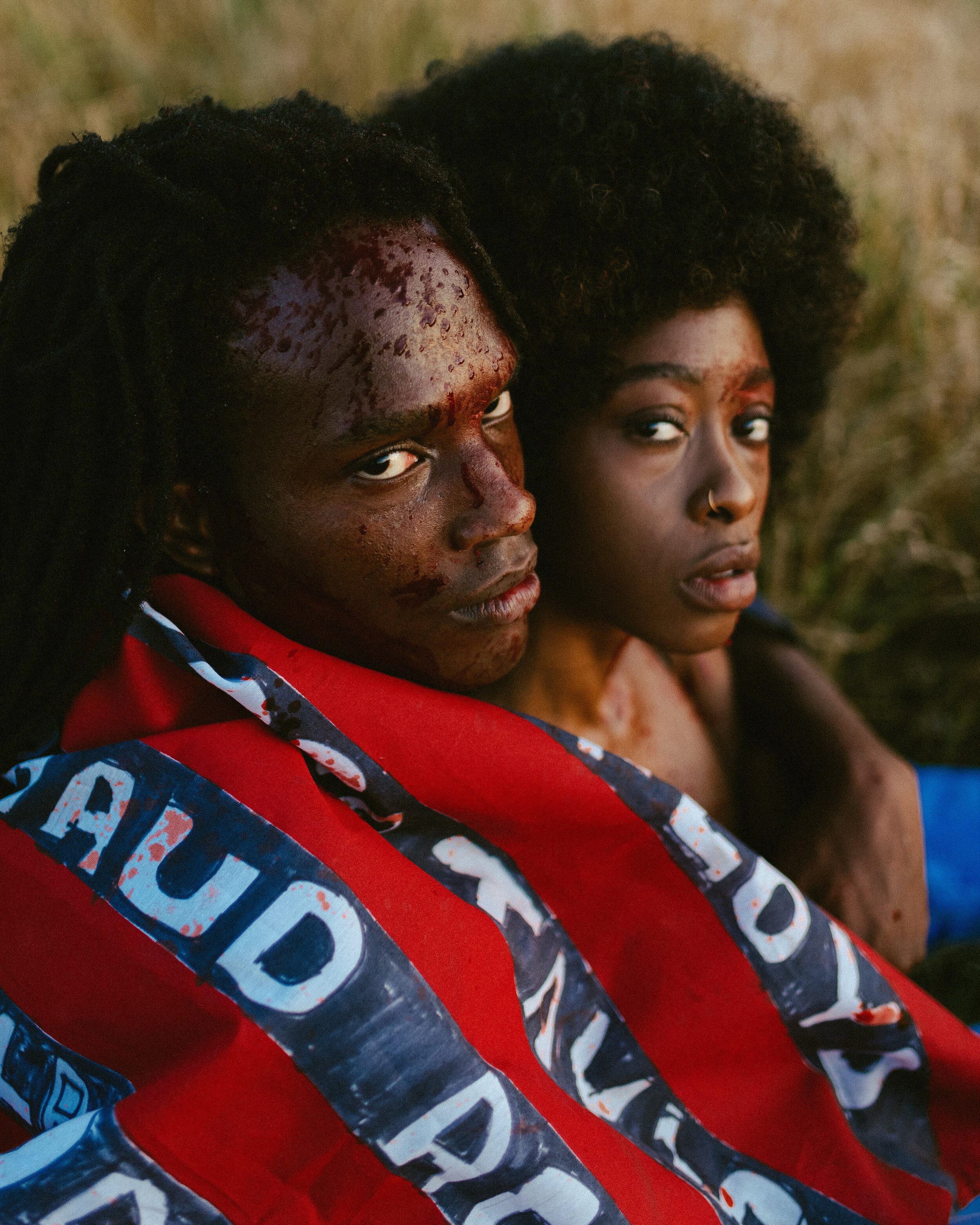
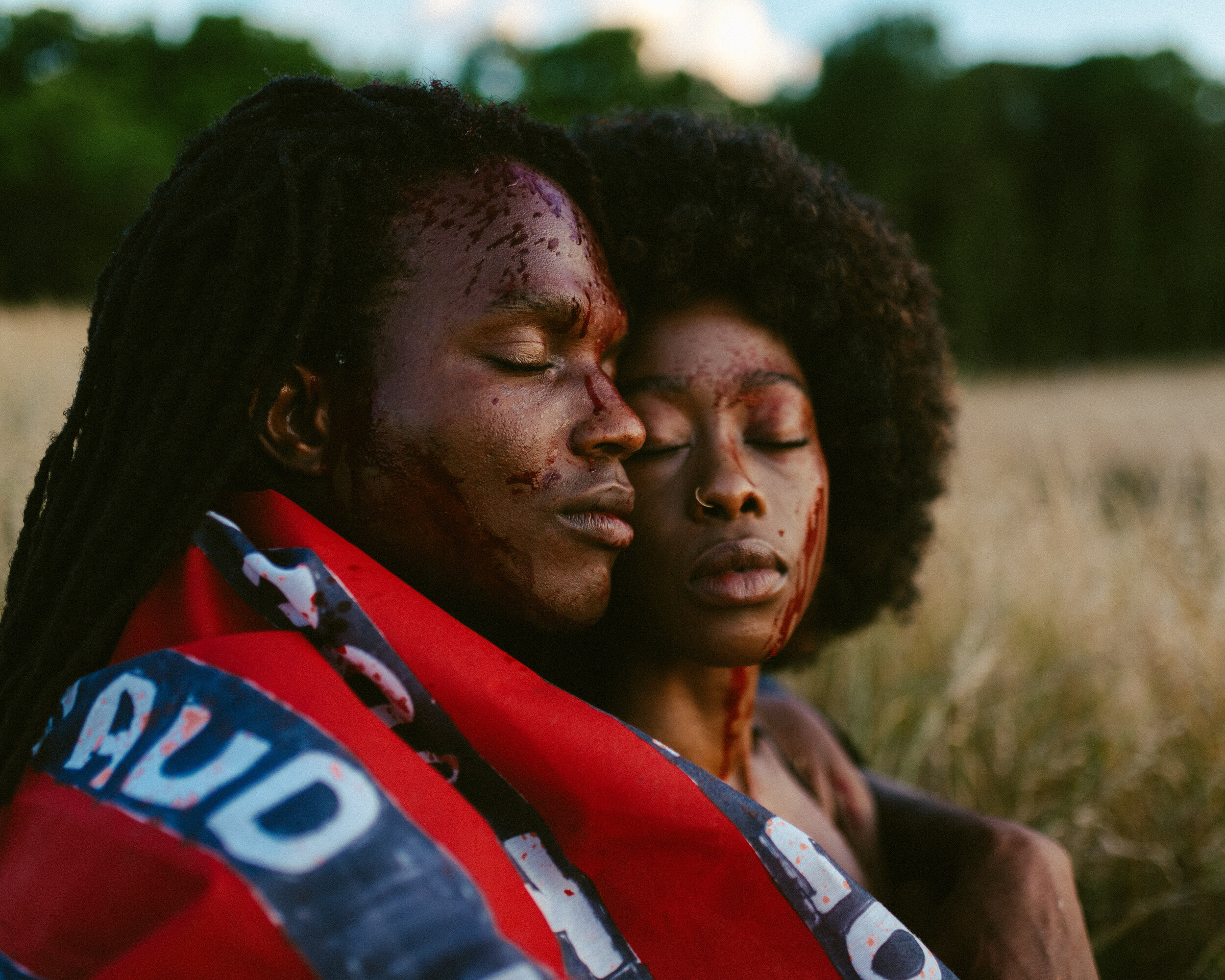
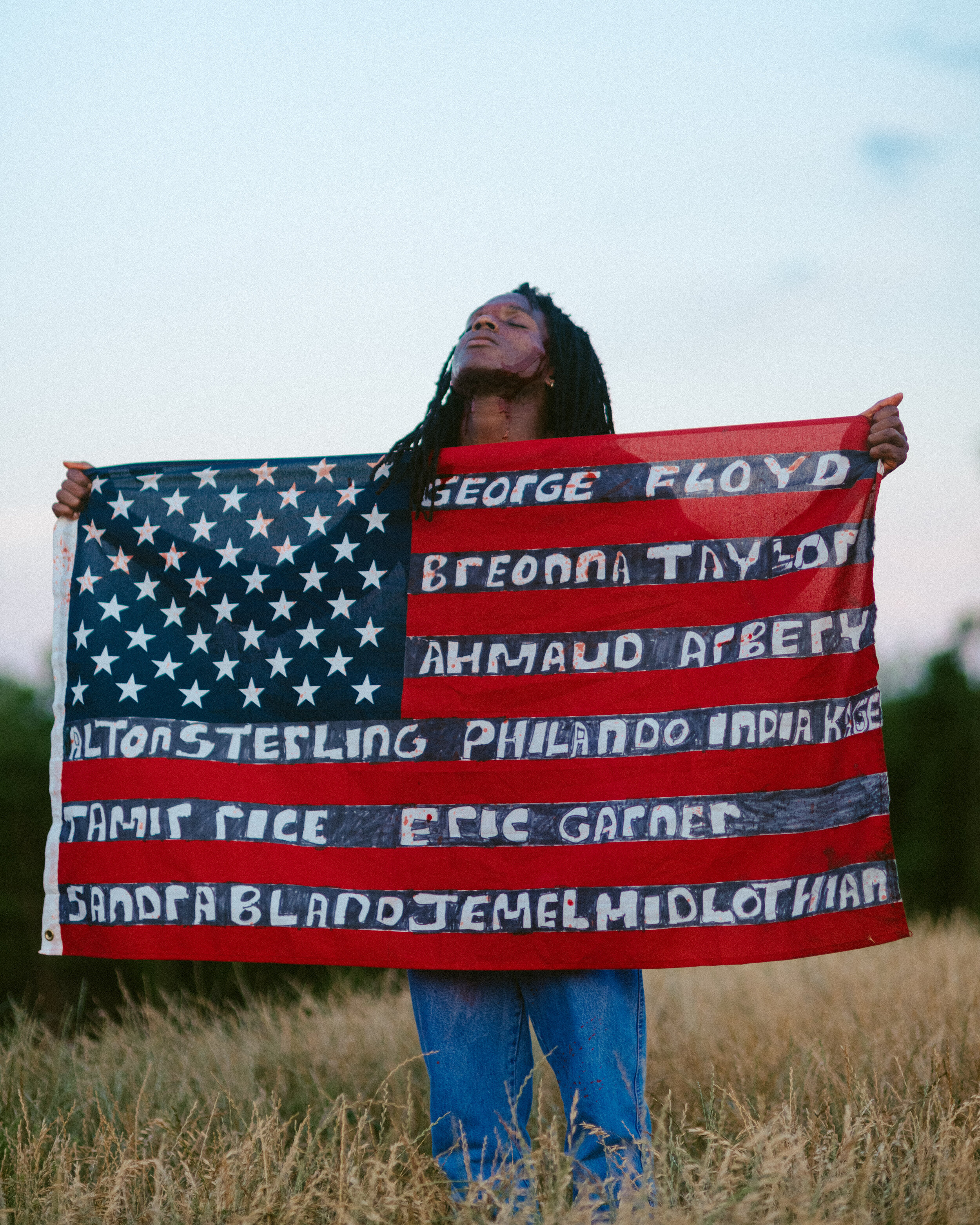
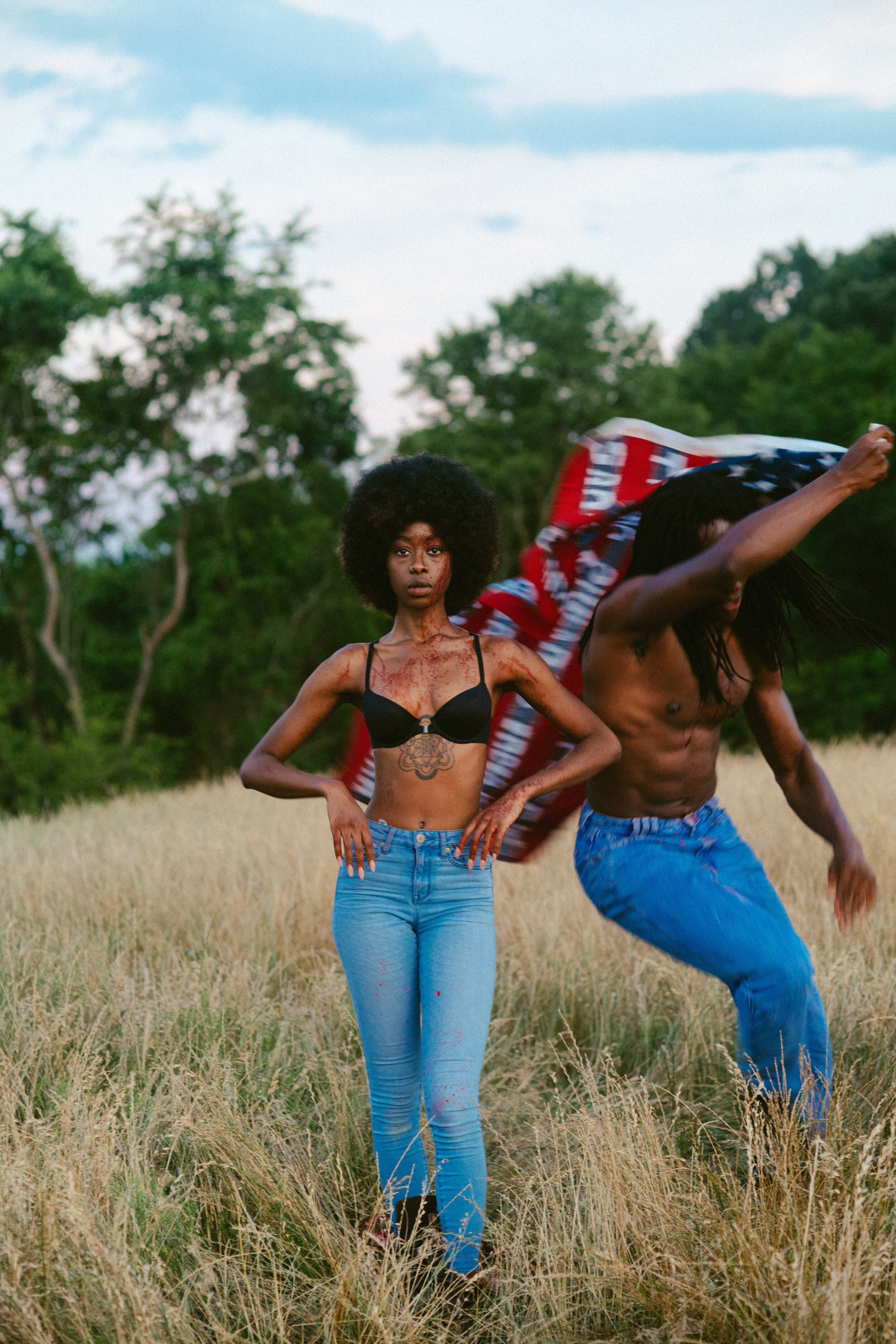
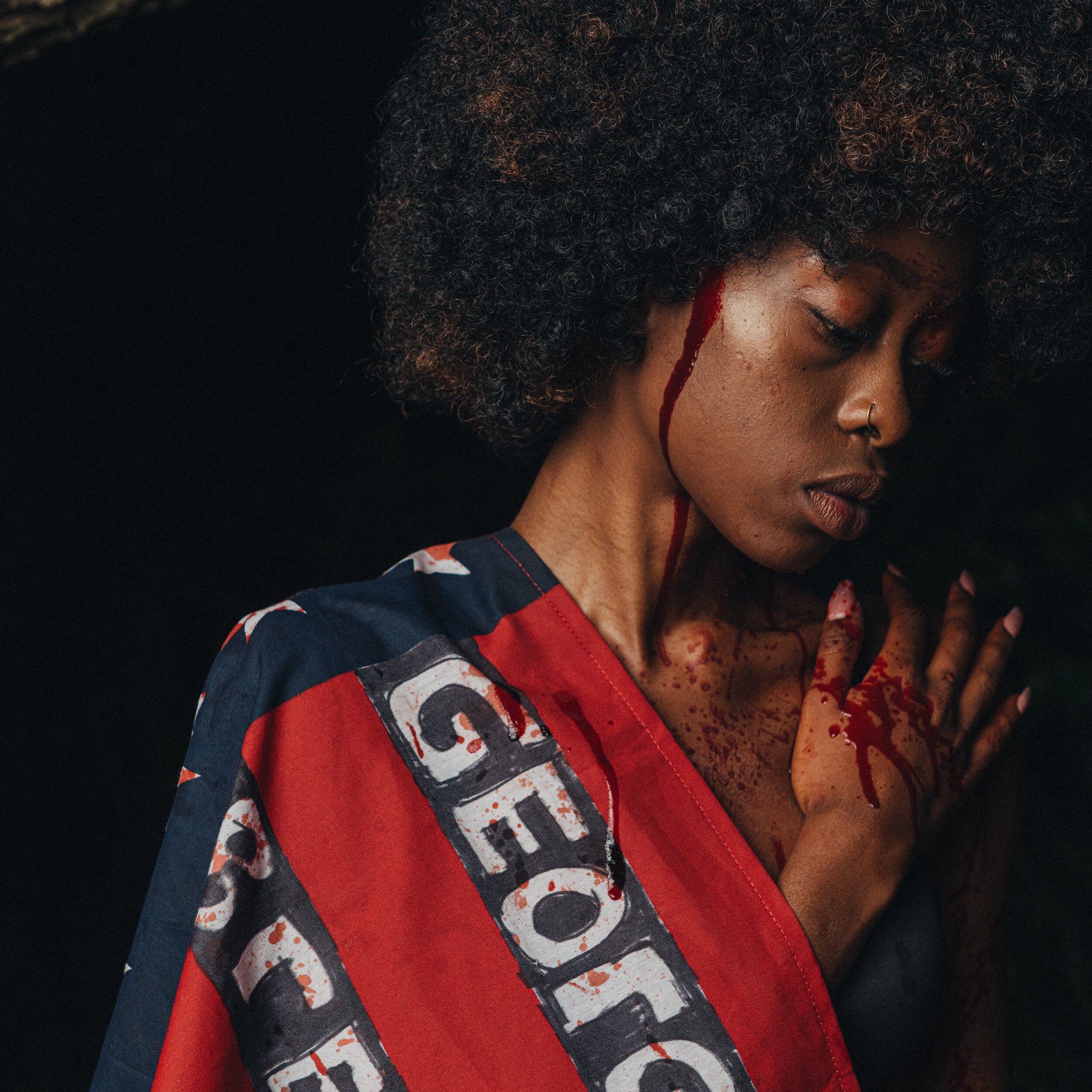
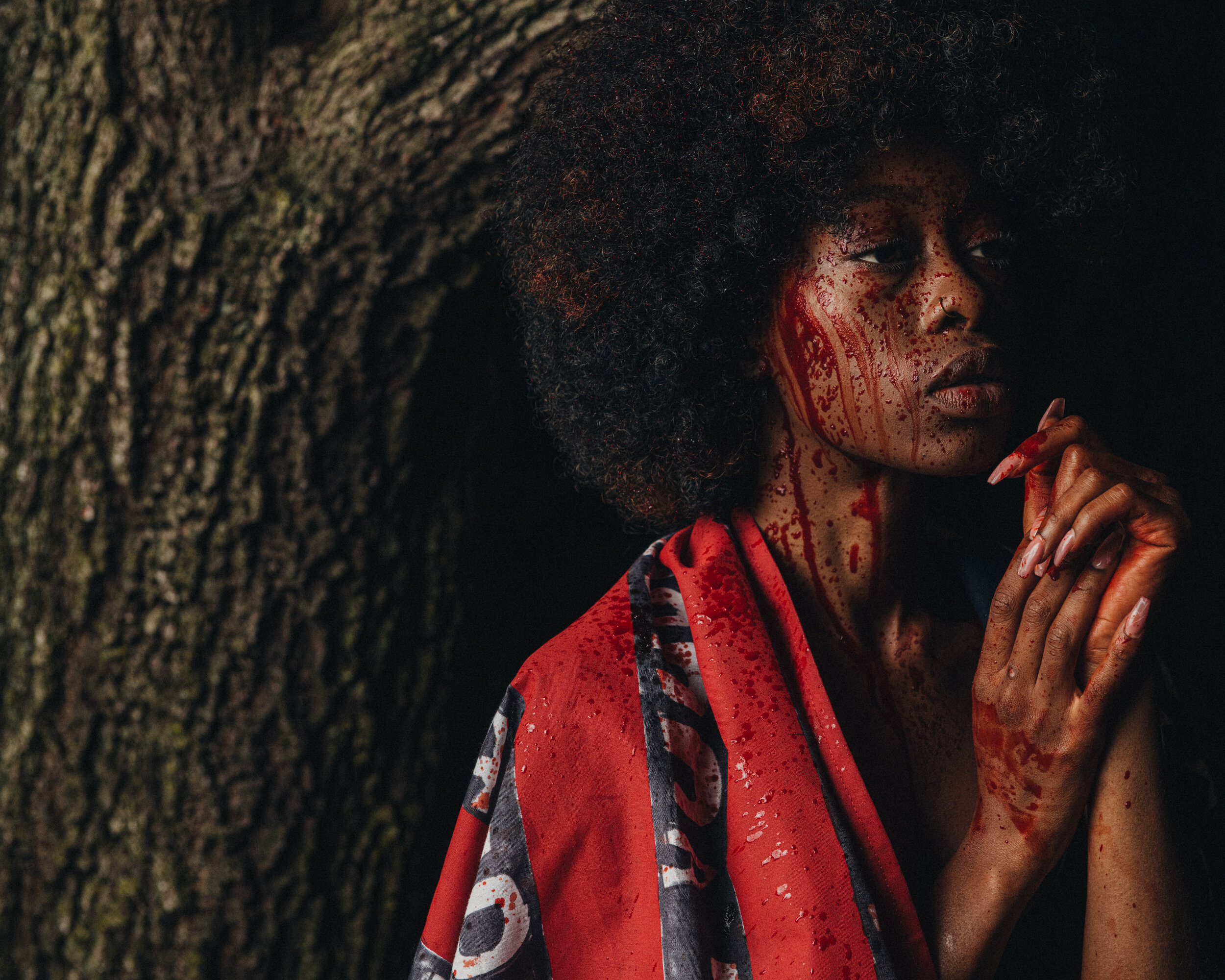
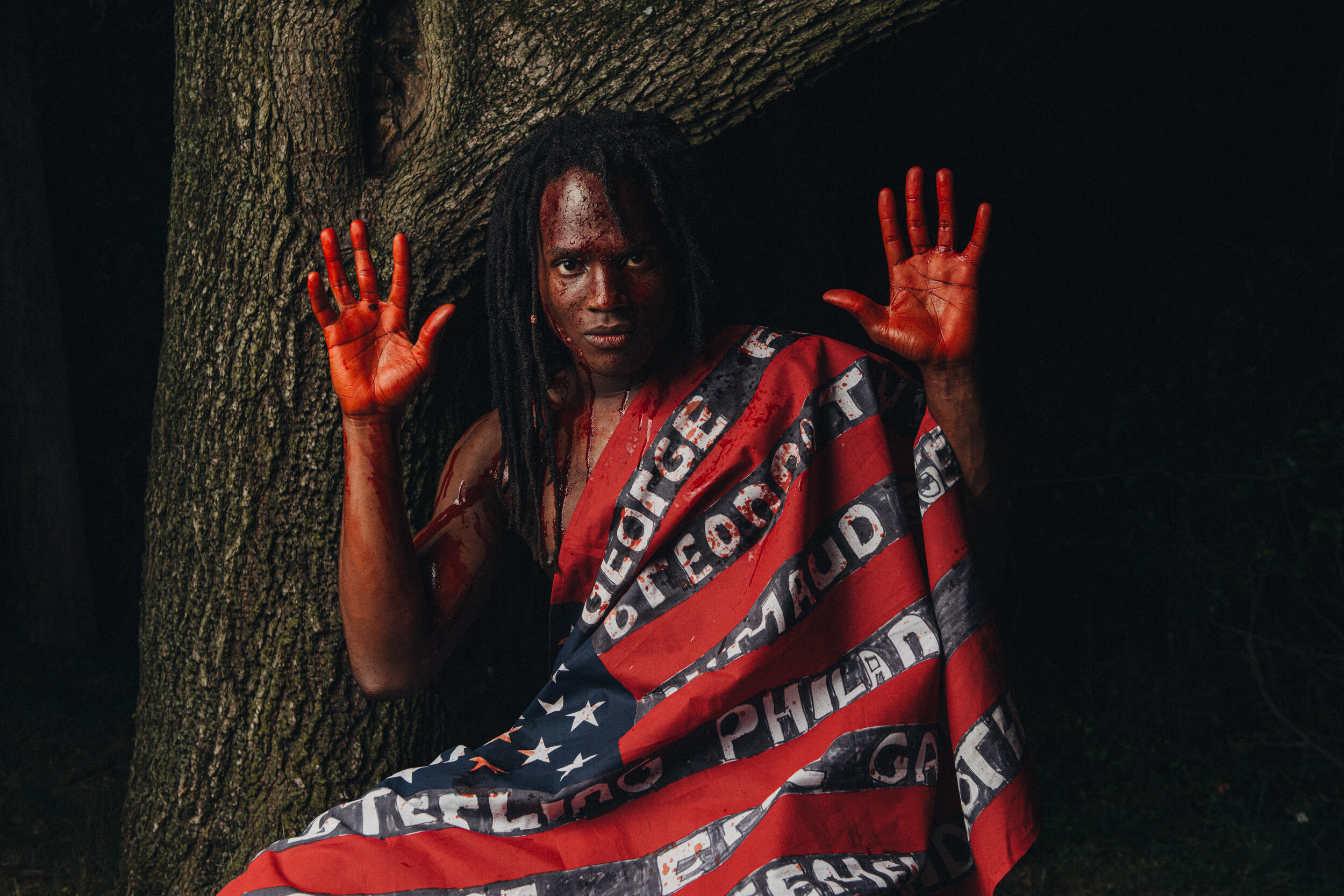
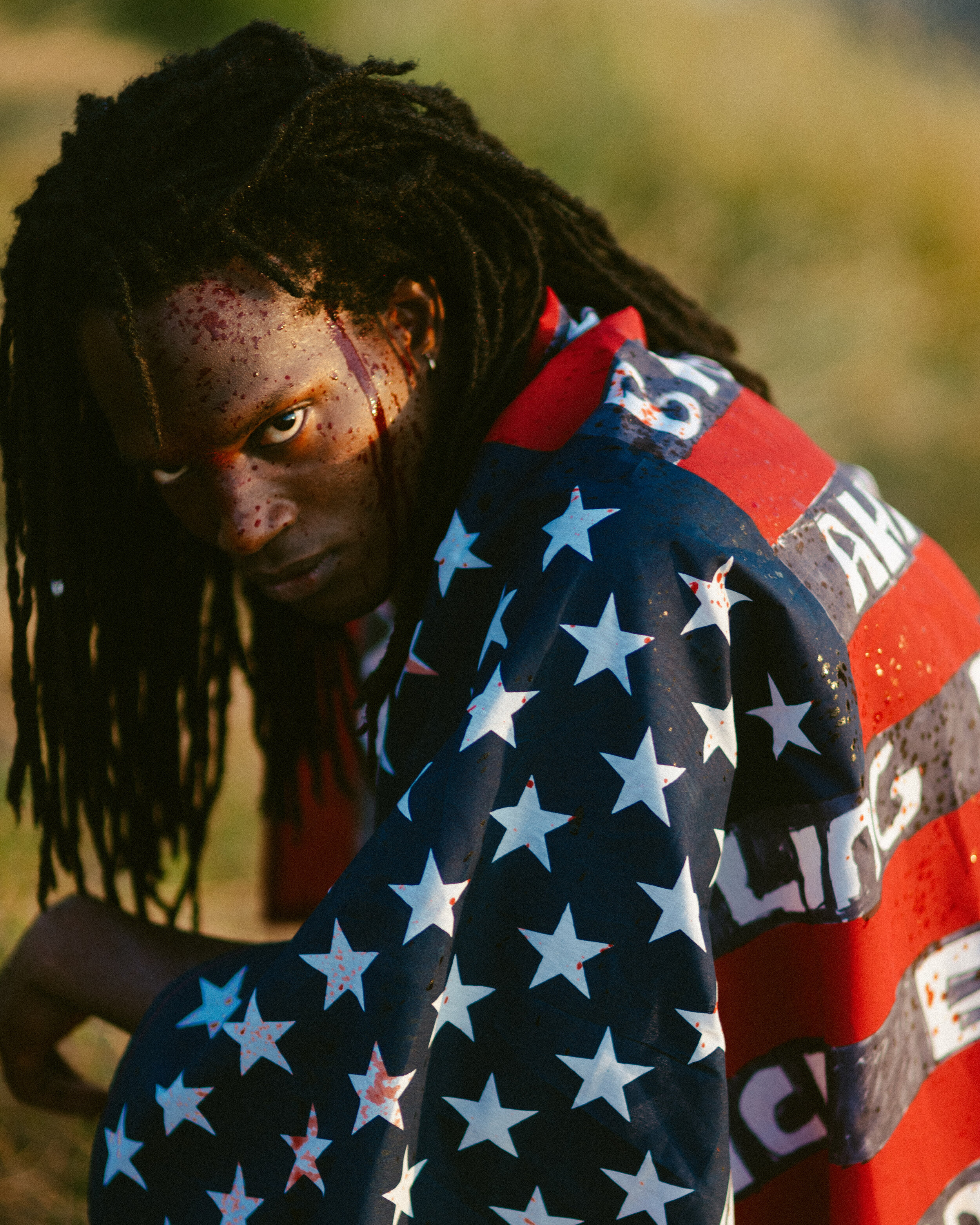
[MAD(e) IN AMERIKKKA] by SHAUGHN COOPER
MODELS FEATURED: MUKASICHIBWETA CHISAKA & TOLUWALASE KOLAWOLE OJO
PA: JOANNA DIAZ & MELANIE PLUMMER
I AM MAD IN AMERICA BECAUSE I WAS MADE IN AMERIKKKA— I was born into a system that wasn’t built for me. I’m MAD that I went through a school system that didn’t teach me about my lineage, but about others. I’m MAD because I had to learn about my people through means other than public school— why didn’t public schools teach us about the 13th amendment? Why didn’t public schools teach us about Kemet? Why didn’t public schools teach me about financial literacy so I could help circulate money in my community? Why did I have to learn these things on my own?
Often I would ask people around me these questions once I was exposed to ideas of them and rarely would I get a solid answer ….. Often I would get a verbatim “I dunno, but as a Black man in America, you’ll have to work ten times as hard to break even ……” As I grow older, I start to wonder ….. what if I was a Black felon (victim to that petty ass 3 strike law that was passed by Bill Clinton)? Would I have to work 100 times harder? What if I was a Black homosexual? Would I have to work 1000 times harder? What if I was a Black woman? Would I have to work 10,000 times harder? What if I was a Black transgendered woman? Would I have to work 100,000 times harder? I just wanna break even man; we gotta do all this JUST to break even? Damn cuz.
As you can tell, most times I’m confused, but through my confusion, I am learning to research to get answers to these questions and more ….. One realization I have came to is that I can no longer celebrate independence for a country that has hunted down my people to enslave us, and if they can’t enslave us, they kill us and they’ve been doing this for the past 400 years; at times I feel like we’ve been on the brink of extinction since we were forcefully brought to this country. But all in all, I think if you are Black or if you consider yourself an ally and you’d still like to pay respect to our country’s history, you should commemorate full awareness of the history of the United States in its full awareness which would also include Juneteenth.
In closing remarks, I’d like to touch on a few more things ….. photographing these protests recently have felt like the first time my life that I fought for something. Every since, I’ve felt fatigued, but I’ve also felt empowered— empowered to create a better tomorrow for my future children, my nieces and nephews, etc; empowered to help my fellow brothers and sisters help dismantle a racist system that our parents, grandparents and great grandparents also had to fight against. I feel like we may be close to the end of it ….. there’s still a lot of work that needs to be done though.
Lastly, being a frontline responder is not the only role you can play in the revolution. If you can’t protest, you can also sign petitions, call elected officials and ask how they are aiding against systematic racism, and you can also speak out against transphobia and homophobia; these are just a few things we can do though, I’m pretty sure there’s a lot more we can do— I’m still learning myself. Thank you for reading.
CALL & EMAIL
Take a moment to realizing the the importance of reparations for slavery here, and take action by urging your U.S. House Representative to support a commission to study and develop a proposal for reparations. Read more about the H.R. 40 bill here.
See where your state is at on taking action to prevent police violence here—plus, you can find your representative and see how they’re voting on the subject.
Send a message to congress to protect Black voters here, and follow the prompts here to find out who to call and what to say in order to support protections for Black owned businesses.
Find your local, county, state, and/or federal representatives and reach out to support criminal justice reform, allocation of taxpayer funds towards community services, and call for civilian oversight of police.